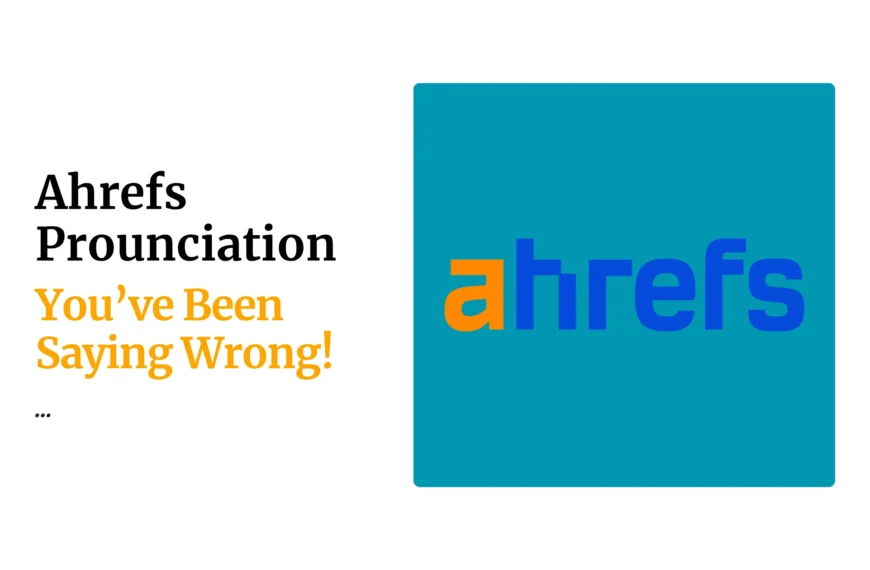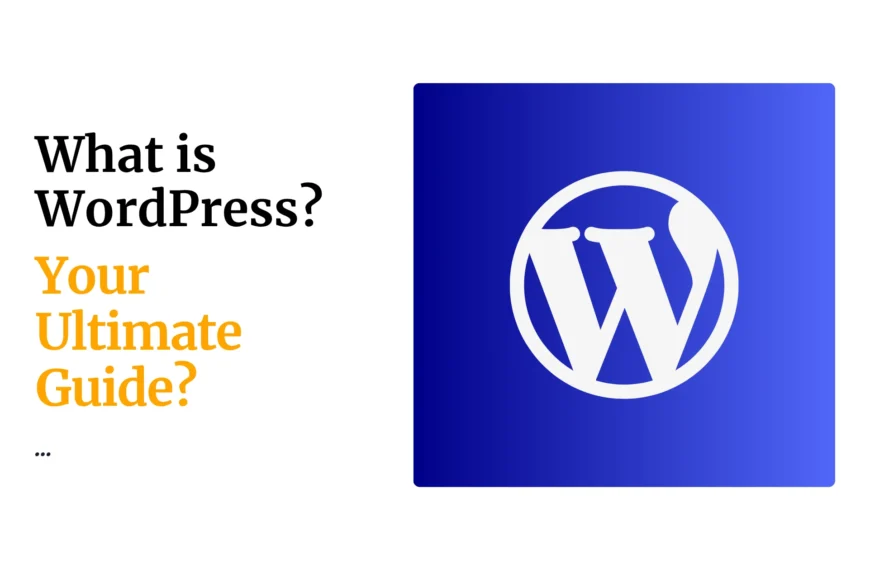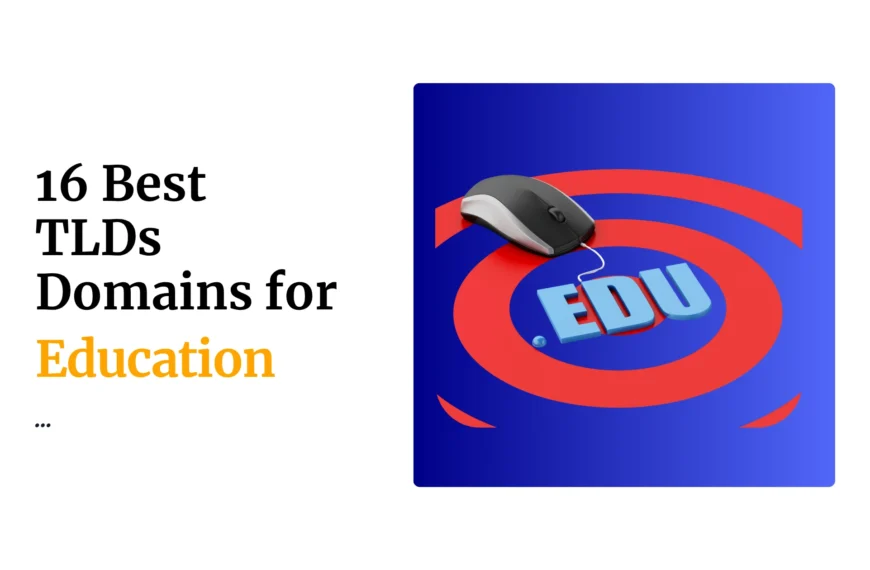This is a question I hear all the time, and the answer isn’t a simple yes or no.
Well, you see, the core WordPress software is free and open-source, but getting a fully functional website up and running will cost you.
Let’s dive deep into this, so you have a complete picture of what to expect.
Yes, WordPress is Free, Up to a Point… WordPress.org
We’re talking about the WordPress software itself, the one you download from WordPress.org. It costs you precisely nothing, since it’s open-source software, meaning it’s licensed under the General Public License (GPL). This gives you (or anyone) the freedom to:
- Use it for any purpose, with no licensing fees and no restrictions on commercial use. You can build a personal blog, an e-commerce store, a corporate website, a community forum, or a web application.
- Study and modify its source code (as it’s publicly available), to suit your exact specifications and even build new functionalities on top of it.
- Distribute it to others, either in its original form or with any modifications you’ve made.
- Improve it through regular updates, security enhancements, bug fixes, and new features.
So, Where Does the Cost Come In, you ask?
Before we go into the cost specifics, it’s crucial to clarify a common point of confusion among users: the difference between WordPress.org and WordPress.com.
We already covered this distinction in a separate post (link shown above), so we won’t go into details. But just to recap,
- WordPress.org is self-hosted WordPress, meaning that although the software is free, you’ll still need to incur the cost of hosting and taking the site online.
- WordPress.org is a hosted service. It is a paid service, but it is also simplified as it comes pre-installed and is also fully managed for you. It also has a free plan.
While WordPress.com does offer a free plan, it comes with significant limitations, including restrictive features and WordPress.com branding/ads. To unlock more advanced features, and greater customization, and to remove branding, you will need to upgrade to one of their paid plans.
For the remainder of this post, we’ll focus on WordPress.org (self-hosted WordPress), because this is where the question of “free” and “costs” comes into play.
What Do You Need to Pay for WordPress.org?
While the WordPress software is freely available, a live website, much like a physical office, requires a location and an address for people to find it. This is where the essential, unavoidable costs come into play:
Domain Name (Annual Cost):
Your domain name is your website’s unique address on the internet (e.g., yourwebsite.com).
It’s what people type into their browsers to access your site. It will cost you to register a domain (and you may expect that already). But what most people forget is that you’ll need to renew the domain every year, at a cost.
Domain names are part of a globally managed system (overseen by organizations like ICANN), and registrars (like Truehost) charge a fee for the registration, maintenance, and renewal of these unique addresses.
It’s an administrative cost necessary to ensure your specific web address remains exclusively yours.
While the domain name may come at a fair price to lure you in, renewing can be quite high. So, beware of domain registrars who use these unfair pricing tactics.
Truehost keeps things transparent, making it easy to not only register your domain but to renew at a fair price to keep the cost of running your business low.
A .co.ke domain name on Truehost goes for kes.399 (Offer) and a renewal fee of kes. 1,200, compared to kes. 2,500 from our competitors.
Web Hosting
Web hosting is the service that stores all your website’s files (images, text, code) and makes them accessible to internet users worldwide.
Truhost provides website hosting in addition to domain registration.
Hosting comes at a cost because hosting providers have to foot the operational costs of maintaining servers, ensuring network uptime, implementing security measures, and providing customer support.
So providers have to charge a fee to keep all these processes running.
There are different types of hosting, so what you’ll pay will vary depending on the type of service you choose. At TrueHost, you can access the following types of hosting:
- Shared Hosting: Webhosting Starter/Pro/ Unlimited: These three services differ depending on the number of websites they allow you to host, monthly visits to your site, and the storage space you can access.
The starter package costs KES. 188/month, pro kes. 394/month, and unlimited kes. 1632/month. You can view more details on our web hosting pricing page. - VPS (Virtual Private Server) Hosting: This is a powerful option more suitable for very large websites or applications with unique technical demands. Truehost provides:
- Kenya VPS hosting at Kes. 1,400/month for our lower package (Kenya cloud VPS 1) and Kes. 2800/month for the higher package (Kenya Cloud VPS 2). You can view the features of each pricing package here.
- Cloud VPS hosting at Kes. 699/month for Cloud VPS1, KES 1260/month for Cloud VPS 2, and kes.3,800/month for Cloud VPS 3. More package details here.
- Managed cloud hosting has three pricing packages, starting with Cloud Starter at KES. 1120/month, Cloud Pro at KES. 2,240/month, and Cloud Business at kes. 5040/month.
More pricing details are here.
- Kenya VPS hosting at Kes. 1,400/month for our lower package (Kenya cloud VPS 1) and Kes. 2800/month for the higher package (Kenya Cloud VPS 2). You can view the features of each pricing package here.
SSL Certificate
An SSL (Secure Sockets Layer) certificate secures the connection between your website and your visitors’ web browsers to protect sensitive data, such as login credentials, personal information, and credit card details, as this information travels across the internet.
Websites with SSL display "https://" in their URL and often a padlock icon in the browser address bar.
An SSL certificate is important because Google actively prioritizes secure websites in its search rankings. So getting one is crucial for SEO.
It also promotes trust by reassuring visitors that their interactions with your site are private and secure.
You can get a free SSL certificate with some of our hosting services, or you can buy one separately. Truehost provides a wide range of SSL certificates, all varying in cost depending on the type of SSL certificate and the number of domains it covers.
Enhancing your WordPress website (optional but necessary costs)
A lot of work goes into making a website appear professional.
You could cut costs by doing most of the design work yourself. But even then, you may still need to pay for themes, plugins, or other design elements.
Premium Themes (One-time or Annual Cost)
Themes determine the design, layout, and look of your WordPress website. WordPress has many free themes. But if they don’t work for you, you’ll need to buy a premium theme.
One reason you might want to upgrade to a pro theme is that they often come with advanced features that you might not get in the free ones.
Premium Plugins (One-time or Annual Cost)
Just as with themes, some plugins are free, but if you want a plugin that performs a complex task, such as e-commerce or building a membership site, you’ll need to pay for it.
Website Development and Design Services (Hourly or Project-Based Cost):
If you don’t have the time, technical expertise, or design skills to build your WordPress website, you might choose to hire a professional WordPress developer or designer.
The cost of hiring one will vary based on your website’s complexity, the professional designer’s experience, and their geographical location.
It’s possible to hire a professional and still end up with an underperforming website, not to mention the delays that often come with working with freelancers.
Truehost helps you overcome design challenges with our friendly-priced website builder that does the design work for you.
Ongoing Website Maintenance and Security (Monthly or Annual Cost):
Your website will need continuous maintenance to ensure it remains secure and performs.
Maintenance includes tasks such as WordPress core updates, updating theme and plugin files, regular website backups, security monitoring, and removing malware if necessary.
Other Less Obvious Costs
Beyond the obvious expenses listed above, you still need to consider these other hidden costs:
- Time Investment: Even if you’re handling all website tasks yourself, your time is a valuable resource. Learning WordPress, customizing your site, troubleshooting issues, and performing ongoing maintenance all require time. And as you know, time=money.
- Expansion costs: As your website grows in terms of traffic, content, and features, you may need to pay for better hosting, premium plugins, or even hire someone to customize your site. All these upgrades will lead to increased costs.
- Emergency Repairs: In case you are hacked, experience update errors, or unexpected downtime, the cost of emergency repairs can be substantial. These unforeseen expenses often outweigh the cost of regular, proactive maintenance.
- Integrations: You might need to integrate with email marketing platforms, customer relationship management (CRM) systems, payment gateways for e-commerce, or advanced analytics tools. Such services come with subscription fees.
Final Words: So, Is WordPress Free?
Yes, the core WordPress software is free. You can download it today and begin experimenting with it.
However, to launch a functional and professional website using self-hosted WordPress, you will incur costs.
The most unavoidable expenses are for a domain name and web hosting.
Beyond these two necessary costs, how much you spend will depend on what you want your website to do, how you want it to look, and whether you choose to manage everything yourself or hire a professional designer.
Ready to Start and Launch Your Hustle Online? Buy a domain and hosting at Truehost Now.
 Domain SearchInstantly check and register your preferred domain name
Domain SearchInstantly check and register your preferred domain name Web Hosting
Web Hosting cPanel HostingHosting powered by cPanel (Most user friendly)
cPanel HostingHosting powered by cPanel (Most user friendly) KE Domains
KE Domains Reseller HostingStart your own hosting business without tech hustles
Reseller HostingStart your own hosting business without tech hustles Windows HostingOptimized for Windows-based applications and sites.
Windows HostingOptimized for Windows-based applications and sites. Free Domain
Free Domain Affiliate ProgramEarn commissions by referring customers to our platforms
Affiliate ProgramEarn commissions by referring customers to our platforms Free HostingTest our SSD Hosting for free, for life (1GB storage)
Free HostingTest our SSD Hosting for free, for life (1GB storage) Domain TransferMove your domain to us with zero downtime and full control
Domain TransferMove your domain to us with zero downtime and full control All DomainsBrowse and register domain extensions from around the world
All DomainsBrowse and register domain extensions from around the world .Com Domain
.Com Domain WhoisLook up domain ownership, expiry dates, and registrar information
WhoisLook up domain ownership, expiry dates, and registrar information VPS Hosting
VPS Hosting Managed VPSNon techy? Opt for fully managed VPS server
Managed VPSNon techy? Opt for fully managed VPS server Dedicated ServersEnjoy unmatched power and control with your own physical server.
Dedicated ServersEnjoy unmatched power and control with your own physical server. SupportOur support guides cover everything you need to know about our services
SupportOur support guides cover everything you need to know about our services




